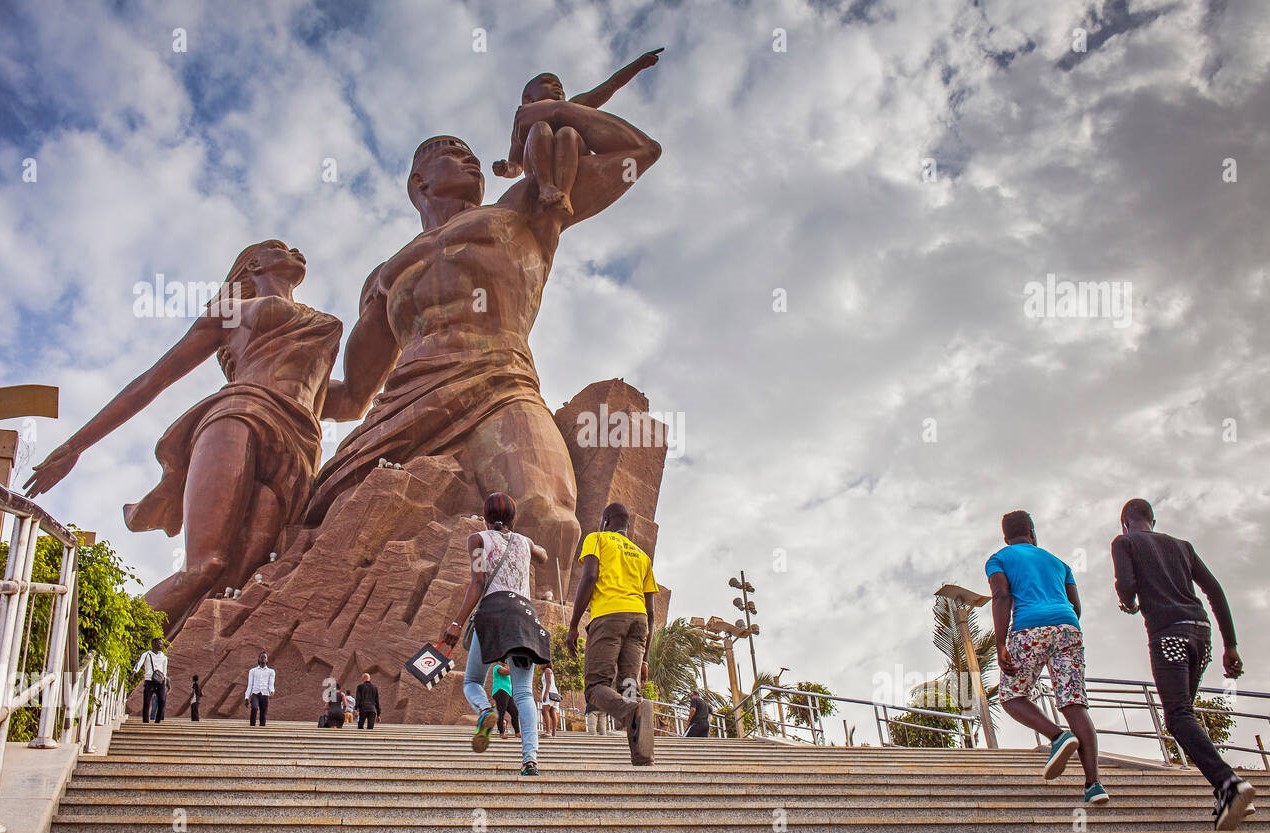The Igbo Commitment to Homeland Development & Economic Recovery

Homeland Blues and Igbo Diaspora Role in Regional Recovery
The Igbo diaspora’s homeland investment is lagging. A reset is needed to unlock its massive potential.
By Chudi Okoye
If there’s one thing that gives one pause in pondering the persistent claim of Igbo Jewish lineage or broader heritage – apart from the paucity of historical proof – it is the differing attitudes of Jews and Igbos to their respective homelands.
Consider this stark dissimilitude. When Israel launched “Operation Babylon” in 1981 to destroy Iraq’s Osirak nuclear reactor, its fighter jets avoided Ur – Abraham’s birthplace in southern Iraq, now, in Arabic, called Tell el-Muqayyar – as if some ancestral reverence restrained their path. Over the years Israel has launched other attacks on Iraq – an ancient power which, as Babylon, brutally oppressed the Jews. Yet it has never struck that sacred ground, once described by Pope Francis as “the place where faith was born.”
By contrast, Igbo separatists invoking Jewish kinship have shown little such restraint. Under IPOB and its armed wing ESN, they impose coercive sit-at-home orders that have crippled the very homeland they claim they’re trying to liberate. Since 2021, the campaign has triggered 332 violent incidents, claimed 776 lives, and cost ₦7.6 trillion in economic damage, according to SBM Intelligence. Modeled, perhaps, on a 1961 South African anti-apartheid protest, the IPOB version is not brief and voluntary, but indefinite, compulsory, and self-defeating. Israeli jets spared their symbolic origin; Igbo militants ravage their own.
But that’s only one distinction. Consider also the specter of homeland crisis which afflicts both Israel and Igboland, and the contrasting attitudes of Jewish and Igbo diasporas: one showing fortitude and patriotic risk acceptance; the other, for the most part, risk aversion and apparent withdrawal.
Jewish Diaspora
Throughout Israel’s tumultuous history – marked by wars, intifadas, rocket attacks, and retaliatory strikes – the Jewish diaspora has remained deeply engaged in Israel’s survival and development. From the Nakba (the mass displacement of Palestinians) and the 1948 Arab–Israeli War to the current Gaza and Iran flashpoints, diaspora commitment has remained steadfast, not just in sentiment but in strategy and substance.
Between 1948 and the early 2000s, diaspora Jews contributed an estimated $40–60 billion to Israel through direct aid, endowments, and philanthropic organizations, funding housing, education, and immigration absorption. U.S. Jewish philanthropy alone contributes over $2 billion annually, supporting hospitals, universities, and cultural programs.
A pillar of this commitment is Israel Bonds, which have raised over $50 billion since 1951 to support national development. After the October 7, 2023 Hamas attacks, diaspora Jews mobilized $1.4 billion in emergency aid and within months purchased $3.6 billion in Israel Bonds – reviving a tradition seen during previous crises: $250 million raised in 1948, and $700 million during the 1973 Yom Kippur War. Today, diaspora Jews inject around $3 billion annually into Israel’s economy, not merely as financial flows but as expressions of solidarity and enduring faith in the homeland.
Beyond economic commitment, the Jewish diaspora wields extraordinary influence in securing foreign government support, especially from the United States. According to the Council on Foreign Relations, the U.S. has provided over $310 billion (inflation-adjusted) in aid to Israel – more than to any other country. This reflects not only shared values and strategic alignment but also persistent, organized lobbying by powerful Jewish advocacy networks.
That support extends further. The U.S. has cast 50 of its 88 UN Security Council vetoes to shield Israel from critical resolutions. In moments of crisis, diaspora-aligned influence has been decisive. Most recently, against domestic opposition, it drew America into Israel’s confrontation with Iran, culminating in the June 21, 2025 U.S. strike on Iranian nuclear facilities. The _New York Times_ estimated that the mission cost the U.S. hundreds of millions of dollars in munitions and logistics alone. Israeli lobby at times drives the world’s most powerful state to self-abnegating behavior.
The Jewish diaspora’s reach extends beyond diplomacy. It brokers defense contracts, technology transfers, and global partnerships that reinforce Israel’s resilience. The diaspora not only supports Israel, it reshapes the world around the homeland to secure its future.
Diaspora support also manifests demographically. _Aliyah_ – Jewish return to the homeland – has brought over 3.4 million immigrants since 1948, helping build a Jewish population of 7 million in a nation of 9.5 million. This has ensured Jewish political dominance; but these immigrants also bring capital, connections, and competence, powering Israel’s rapid ascent. It is proof that, for some diasporas, homeland crisis is not cause to flee but to flex – a summons to destiny.
Igbo Diaspora
Igbo diasporans – abroad or dispersed within Nigeria – are widely recognized for their high achievement in business, academia, and the professions. In some countries, for instance the United States, they are cited as an example of successful immigrant communities, though in others they are considered overly aggressive and a touch overbearing. In general Igbo diasporans maintain strong emotional and cultural ties to their homeland. They are known to send significant remittances back home, often to support kith and kin, though there remains substantial headroom in terms of their direct investment in the South East economy. Many diasporans harvest Igbo identity but do not invest in the land.
This mixed record becomes even more confounding when one considers the magnitude of the diaspora’s potential. PricewaterhouseCoopers (PwC), leveraging data from World Bank, Central Bank of Nigeria, money transfer operators (MTOs), and commercial bank channels, estimates that Nigerians abroad remit $20–25 billion annually. The United States alone contributes around $6 billion – about a quarter of the total. According to the U.S. Census Bureau’s American Community Survey (2022), Nigerians in the U.S. number around 760, 000, and the Joshua Project estimates that Igbos comprise roughly 237,000 – or 31%. If that proportion holds true for remittances, Igbos in the U.S. _speculatively_ send home about $1.86 billion annually. At today’s exchange rate, that amounts to nearly ₦2.88 trillion – equivalent to 82% of the combined 2025 state government budgets in the South East. This figure excludes remittances from Igbos in Europe, Canada, and other parts of the world, which could push the presumptive total significantly higher.
These are, of course, hypothetical extrapolations. It is highly unlikely that Igbo diasporans remit anything near the logic of these assumptions. We can also assume that a significant portion of their actual remittance finds a pipeline into places like Lagos, Abuja, or other attractive destinations. Worse, the trickle that does reach the region is often absorbed in subsistence consumption, ceremonial spending, or prestige projects rather than enterprise development. All these scenarios are troubling, revealing a serious misalignment between diasporic wealth and homeland development. What should be a source of renewal risks becoming a sinkhole of lost opportunity.
Part of the problem may be that the Igbo diaspora is far from monolithic. Some are deeply assimilated in host societies with little homeland consciousness. Others maintain a visible Igbo identity but show little practical interest in engaging the homeland. Some remit to support family or political causes but do not view the homeland as an investment frontier. A smaller cohort is indeed committed to economic engagement. But even among these, a large portion hedge their portfolios elsewhere in Nigeria. Some do so because they perceive, and do receive, better returns outside Igboland. Others are probably deterred by past experiences of fraud; or are concerned about proximity to social obligations that erode capital. Yet others, probably the majority, are repelled by stubborn insecurity in the homeland.
What’s striking is that many Igbos who avoid investing in the South East readily commit resources to regions that are just as volatile. They invest in the North, where sectarian violence simmers, or in the South West – especially Lagos – despite periodic property demolitions and complaints of ethnic discrimination. They absorb these external threats as costs of doing business, yet judge similar or lesser risks in the homeland as disqualifying. This apparent double standard reveals not just a risk calculus, but deeper concerns.
Part of these concerns is the region’s extensive infrastructure deficits. There is no seaport in the South East, no standard-gauge rail or competitive international airport, and there are few serviceable roads to power the regional economy. No major bank is headquartered in the South East. The region also suffers from erratic power supply, poor digital infrastructure, and the absence of designated industrial or logistics hubs. This logistical bottleneck undermines both real and perceived returns. Meanwhile, the Igbo political elites – who often preach the imperative of “aku luo uno” (wealth repatriation) – are largely opportunistic and extraverted. Many run businesses outside the region, station their families abroad or elsewhere in Nigeria, and retreat to Abuja or Lagos after their tenures, treating the South East as a temporary duty post rather than a permanent stake. The hypocrisy is corrosive – reinforcing the very disinvestment they decry.
Even the “aku luo uno” mantra itself may inadvertently encourage a ceremonial, rather than productive, conception of investment. Originally a cultural ethic for wealth repatriation, it is too often interpreted as building a showpiece mansion, hosting lavish events especially during traditional homecoming, or performing kin obligations – not founding enterprises or driving local economic transformation. Home becomes less a place to pursue high ambition and more a stage for self-celebration.
The situation is worsened by separatist agitation. When IPOB militants impose coercive sit-at-home orders, they create an atmosphere of insecurity, disrupt commerce and undermine productivity. These conditions heighten diasporan hesitance, making the South East even less competitive for capital.
But deeper explanations lie in the sociological roots of Igbo itinerancy. The region’s dense population and limited arable land historically fostered outward mobility – what’s been called “economic self-propulsion.” Without centralized kingdoms, the Igbo political structure emphasized personal initiative, enabling migration. Title systems rewarded individual achievement. Trade routes thrived. Over time, mobility became identity.
The Nigerian Civil War further cemented this pattern. After the devastation of 1967–70, Igbos were forced to rebuild through dispersal, having lost assets and status in the post-war order. That emergency turned into a long-term strategy. Diaspora became destination. Home, once the center, became optional.
Today, even after flourishing in business and the professions across Nigeria and abroad, many Igbos maintain this outward posture. It results in a twinned risk and value calculus that leads, in some cases, not just to a brief or strategic disengagement but to permanent withdrawal. Homeland investment shrinks, emotional attachment withers, and alienation deepens, potentially across generations.
Where the Jewish diaspora surges toward homeland crisis, often as an act of defiance, many Igbos recoil from theirs, repelled by homeland risk and precarity. The irony is profound: a people invoking kinship with Jews increasingly desert their ancestral land. If nothing changes, some Igbo diasporans may indeed become a “lost tribe” – not unlike the ten tribes of ancient Israel, exiled by the Assyrians in the 8th century BC, whose descendants vanished into the mists of history.
Several groups – including one I’m actively involved with, the South East Business and Investment Summit (SEBIS) – are working to reverse this trend and reposition Igboland as a viable economic destination. Re-engaging the diaspora is central to that effort, through institutionalized investment vehicles like Igbo Bonds, dedicated diaspora engagement offices, and public-private partnerships to de-risk major projects. But success depends on understanding diaspora fragmentation and the reasons for disconnection.
With proper strategies and persistent outreach, the mental clogs can be unblocked and the vast potential of the Igbo diaspora unlocked, for the long overdue task of homeland development.
*Credit*: This article first appeared in Awka Times of June 26, 2025









